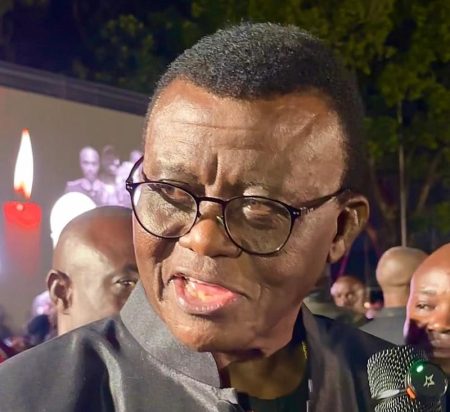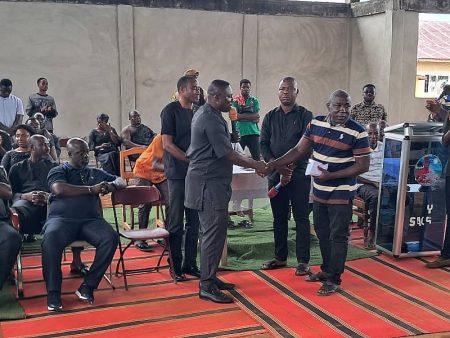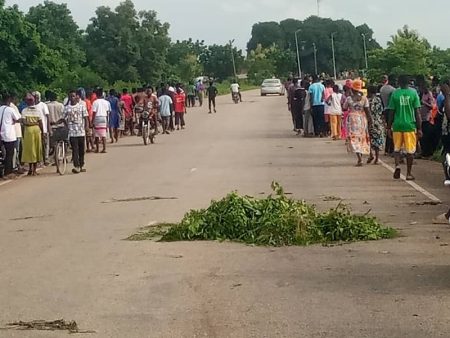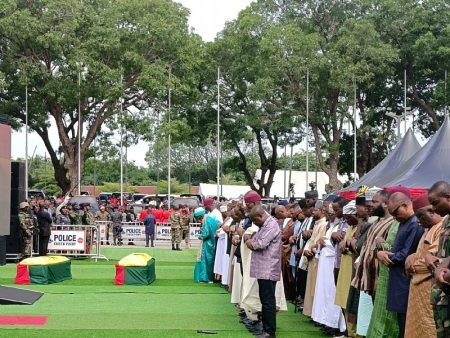The suspension of Christopher Arthur, the New Patriotic Party’s (NPP) 2024 parliamentary candidate for the Agona West Constituency, has sparked controversy within the party. Krobea Kwabena Asante, an aide to former Vice President Dr. Mahamudu Bawumia, has publicly criticized the suspension, characterizing it as arbitrary and lacking due process. Asante contends that the decision, taken by the constituency chairman and secretary, bypassed established party procedures and neglected necessary consultations with other constituency executives and the Disciplinary Committee (DC). This unilateral action, according to Asante, violates the principles of natural justice and warrants sanctions against the chairman and secretary themselves. He urged higher party echelons, specifically the regional and national executives, to overturn the suspension, suggesting the move may stem from a personal vendetta against Arthur.
The core of the dispute revolves around an electoral area meeting organized by Arthur on July 6th. The constituency chairman and secretary, Alhaji Gibrine Tanko and Anthony Kwame Kum respectively, issued the suspension letter dated July 14th, citing Arthur’s meeting as a direct contravention of a party directive against premature campaigning. This directive, issued by NPP General Secretary Justin Kodua Frimpong on May 14th, prohibited all forms of political activity until the official opening of nominations for the 2024 elections. The party leadership justified this measure as essential to preserving internal unity and maintaining a strategic focus on the broader political landscape, particularly in anticipation of the 2028 general elections.
The constituency executives argue that Arthur’s actions not only defied the explicit instruction but also undermined the authority of the party’s leadership structure. They viewed the meeting as a blatant disregard for party discipline and a challenge to the established hierarchy. By organizing the event, Arthur seemingly prioritized individual ambition over collective strategy, potentially jeopardizing the party’s overall electoral prospects. The suspension, therefore, was presented as a necessary step to enforce discipline, uphold party unity, and reinforce the authority of the central leadership.
Krobea Asante’s critique, however, highlights a perceived procedural flaw in the handling of the situation. He argues that even if Arthur’s actions were deemed inappropriate, the constituency chairman and secretary overstepped their bounds by issuing the suspension without proper consultation and referral to the Constituency Disciplinary Committee. This, he contends, demonstrates a lack of adherence to due process and raises concerns about potential bias or personal motivations influencing the decision. The absence of broader involvement from other constituency executives further underscores the perceived lack of transparency and fairness in the process.
The controversy surrounding Arthur’s suspension brings to light a tension between maintaining party discipline and respecting individual rights within the NPP. While the party leadership emphasizes the importance of centralized control and adherence to strategic directives, Asante’s arguments raise questions about the potential for abuse of power and the suppression of dissenting voices. The situation also exposes the challenges of balancing individual ambition with collective goals in a competitive political environment.
The outcome of this dispute will likely have implications for the internal dynamics of the NPP and could influence future disciplinary actions. If the higher party authorities uphold the suspension, it could reinforce the authority of the central leadership and deter further acts of perceived insubordination. Conversely, if the suspension is overturned, it could signal a greater emphasis on due process and internal democracy within the party. Furthermore, the handling of this situation may impact public perception of the NPP’s internal processes and its commitment to fairness and transparency. Ultimately, the resolution of this issue will be a test of the party’s ability to navigate internal conflicts and maintain a unified front as it prepares for the upcoming elections.














